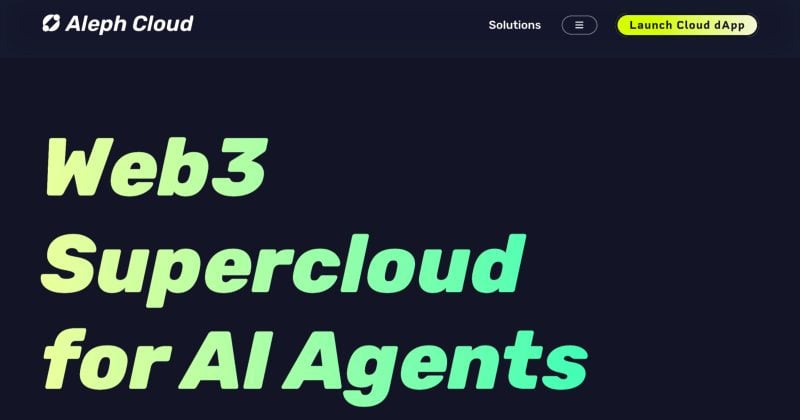Aleph Cloud: A Decentralized Supercloud for AI Applications

As artificial intelligence (AI) systems gain traction, the demand for a decentralized, secure, and adaptable infrastructure is becoming increasingly important. Aleph Cloud emerges as a chain-agnostic, GDPR-compliant supercloud that provides scalable storage, computing, and database services through a network of distributed nodes. This platform integrates dynamic, IPFS-based storage with mutable databases and secure computing resources, catering to a wide range of applications from real-time data processing in gaming to large-scale AI model deployment. The Aleph ecosystem also includes TwentySix Cloud, which simplifies application deployment and management on this distributed infrastructure.
Aleph Cloud is particularly beneficial for AI agents that require constant access to reliable computing power and secure data. The platform offers scalable compute options, including on-demand and persistent virtual machines (VMs), as well as serverless functions that operate on a distributed network. Additionally, confidential VMs utilize hardware-based encryption to ensure the privacy of sensitive computations. The upcoming GPU marketplace, set to launch in Q1 2025, will further enhance the platform’s capabilities, enabling high-performance tasks such as AI training and rendering. This multi-chain support allows AI agents to seamlessly interact with various blockchain ecosystems, facilitating the development and deployment of innovative applications.
In comparison to other cloud solutions like Arweave, Filecoin, and AWS, Aleph Cloud stands out by combining dynamic storage with distributed computing resources in a privacy-first framework. Its unique offerings include flexible storage management, integrated compute capabilities, and enhanced security through confidential VMs. Furthermore, Aleph Cloud’s economic model utilizes the native ALEPH token, which incentivizes network participation and ensures reliable service. With a grant campaign providing up to $1 million in cloud credits, Aleph Cloud aims to empower developers to explore and scale their projects, positioning itself as a leading solution for AI-driven applications in a decentralized landscape.
Related News





